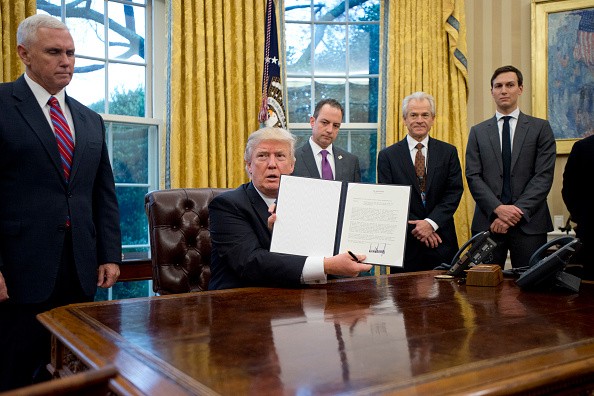As the U.S. looks to retract from its role as a global economic leader through its withdrawal from the Trans-Pacific Partnership (TPP) trade agreement, China is banking its support on two other free trade agreements (FTAs) currently in negotiations.
U.S. President Donald Trump signed an executive order on Monday mandating the withdrawal of the country from the TPP, a move that highlights his "America First" promise that highlights his protectionist emphasis on nurturing the economy through domestic productivity.
The TPP does not include China as among the parties, although the country's strategic role in facilitating economic integration in Asia provides sense to its current support for two FTAs: Regional Comprehensive Economic Partnership and the Free-Trade Agreement of the Asia-Pacific.
Hua Chunying, a spokesperson of the Foreign Ministry, emphasized that China remains committed to aiding Asia's journey to economic integration, with the withdrawal of the U.S. from the TPP serving as a pivotal point. She added that the country values FTAs that produce mutual benefits transparently.
China Daily reported that the promising prospects the FTAs promise call for the immediate completion of their negotiations. Though Hua insisted that China's role in economic leadership would subsume that of the U.S. following the latter's rejection of the TPP, Hua downplayed that to the level of duty.
China Institute of International Studies Department of American Studies director Teng Jianqun recognizes China as the most fitting candidate to step up and take on the U.S. in leading the global economy--a role that's under threat of being undermined by Trump's protectionist pronouncements.
Indeed, as the U.S. steps back to work on the ailing factors of its domestic economy, China is appearing as a ripe candidate to assume a prominent global role to manage the world's economy. Such, of course, would be somewhat emasculated by other players' reservations about a Chinese-led economic impetus.



























